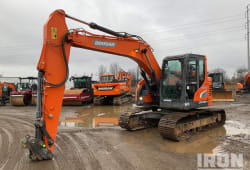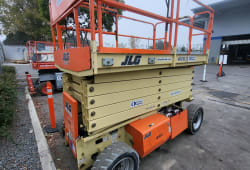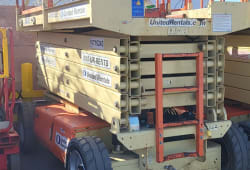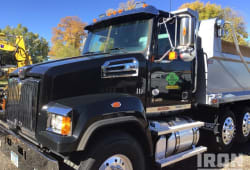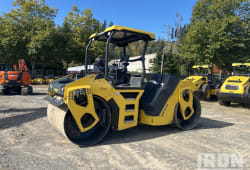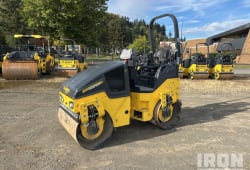Features of 9 Specialty Trucks for the Oil and Gas Industry
8 Lectura mínima
)
septiembre 4, 2023
In the dynamic realm of oil and gas, specialized tools drive success. a specialty truck parts These powerhouse vehicles aren't just ordinary haulers; they're precision-engineered solutions for the unique challenges of the industry. Curious about the backbone of oil and gas operations? From rig transport to fluid hauling, we're unveiling the crucial roles these trucks play. Get ready to explore the cutting-edge features that boost efficiency, safety, and performance. From heavy-duty chassis to advanced pumping systems, we're shedding light on the innovation that keeps the industry moving. Join us as we uncover the world of specialty trucks for the oil and gas sector-a journey that unveils the machinery that powers progress.
A Trio of Specialized Heavy-Duty Vehicles
The world of transportation and heavy machinery is a diverse realm, with various vehicles tailored to meet specific industrial needs. Three such specialized heavy-duty vehicles are the Frac Truck, Crane Truck, and Water Tanker Truck. Each of these vehicles plays a unique and crucial role in industries ranging from oil and gas to construction and beyond. Let's delve into the distinct characteristics and applications of these specialized trucks' right equipment.
Industrial Impact and Future Trends
The impact of fire truck fleets, dry bulk trucks, and vacuum trucks extends across multiple industries and facets of daily life. Fire trucks save lives and protect property during emergencies, contributing to community safety. Dry bulk trucks enable the efficient movement of essential materials, enhancing construction, agriculture, and manufacturing processes. Vacuum trucks play a vital role in waste management and environmental preservation, preventing contamination and facilitating cleanup efforts.
As technology advances, these specialized trucks are likely to incorporate innovations that enhance their capabilities and environmental performance. Fire trucks might incorporate advanced firefighting technologies, improving their ability to tackle diverse types of fires. Dry bulk trucks could see improvements in load tracking and material handling systems, optimizing transport logistics. Vacuum trucks might adopt more efficient vacuum systems and waste treatment technologies, reducing their environmental footprint while maintaining their efficacy in waste management.
1. Frac Truck
The Frac Truck, short for Fracturing Truck, is a vital player in the oil and gas industry. Its primary function is to facilitate hydraulic fracturing, a technique used to extract oil and gas from deep within the earth's crust. Hydraulic fracturing involves injecting a high-pressure mixture of water, sand, and chemicals into underground rock formations, creating fractures that release trapped hydrocarbons. The Frac Truck houses a pumping unit that generates the immense pressure required for this process.
These trucks are equipped with several large tanks capable of holding thousands of gallons of water, along with compartments for sand and chemicals. The water, sand, and chemicals are mixed within the truck and then pumped into the well at a high velocity, creating fractures that allow oil and gas to flow more freely to the surface.
2. Crane Truck
The Crane Truck is a versatile workhorse in the construction and logistics sectors. Its defining feature is a crane mounted on the truck or trailer's chassis, allowing it to lift and move heavy loads with precision. Crane Trucks come in various sizes and configurations, ranging from smaller models with foldable cranes to large units with telescopic or articulating cranes.
These trucks find application in a wide array of industries, from construction sites for lifting heavy building materials like steel beams and concrete blocks, to loading and unloading cargo at ports and warehouses. The ability to position and maneuver the crane in tight spaces and over obstacles makes Crane Trucks indispensable in situations and locations where traditional cranes might not be feasible.
3. Water Tanker Truck
Water is a precious resource, and its efficient transportation is vital across numerous industries. Water Tanker Trucks are purpose-built vehicles designed to transport and distribute large quantities of water to various destinations. They play a critical role in sectors such as construction, agriculture, firefighting, and municipal services.
These trucks feature massive water storage tanks with capacities ranging from a few hundred to several thousand gallons. Depending on their application, Water Tanker Trucks can be equipped with specialized pumps, hoses, and nozzles for controlled water discharge. In construction, they dampen dusty roads and construction job sites, while in agriculture, they irrigate fields. Additionally, they assist firefighting efforts by supplying water to remote areas lacking hydrants.
4. Seismic Truck
The Seismic Truck stands as a remarkable example of cutting-edge technology harnessed for geological exploration. This specialized vehicle and service is primarily employed in the field of seismic surveys, a technique utilized to study the Earth's subsurface and understand its composition. Equipped with advanced seismic sensors and data acquisition systems, the Seismic Truck measures ground vibrations caused by controlled seismic sources. These vibrations, or seismic waves, provide valuable insights into the underlying geological structures, assisting geologists, engineers, and the oil and gas industry in identifying potential drilling sites, reservoirs, and subsurface features. Seismic Trucks operate in rugged terrains and extreme conditions, emphasizing their significance in the pursuit of energy resources and the expansion of our geological knowledge.
5. Utility Truck
The Utility Truck is a versatile workhorse that thrives across a multitude of industries. With its myriad compartments, lifting mechanisms, and tool racks, this truck is designed to meet diverse requirements in fields such as construction, maintenance, emergency services, and beyond. Its ability to transport various equipment and materials on-site significantly enhances operational efficiency. Utility Trucks often come with integrated power sources and accessories, enabling technicians to perform tasks like welding and electrical repairs directly at the location. By being adaptable to a range of applications, the Utility Truck streamlines tasks reduces downtime, and contributes to the smooth functioning of critical sectors.
6. Tie-Down Truck
The Tie-Down Truck, a specialty truck, while less conspicuous, plays an essential role in maintaining road safety and cargo integrity during transportation. Its primary function revolves around securing loads on trailers, preventing shifting, and ensuring that goods reach their destination intact. Equipped with sophisticated strapping, lashing, and locking mechanisms, Tie-Down Trucks safeguard against accidents, cargo damage, and road hazards caused by improperly secured loads. Their importance is particularly evident in the logistics industry, where stringent regulations and safety standards dictate the need for secure cargo transport. By maintaining the stability of loads, Tie-Down Trucks uphold the safety of drivers, other road users, and valuable commodities being transported.
7. Fire Trucks
Fire trucks, also known as fire engines or fire apparatus, are iconic symbols of emergency response teams. These vehicles are equipped with an array of tools and equipment designed to combat fires, rescue individuals, and provide critical aid during emergencies. Fire trucks carry water tanks, hoses, ladders, and firefighting foam, enabling firefighters to swiftly respond to and suppress flames. Beyond firefighting, they are equipped towing and with specialized tools for rescuing individuals from hazardous situations, such as vehicle extrication or building collapses. Fire trucks play a vital role in protecting lives, property, and the environment, showcasing the importance of well-equipped and trained firefighting teams in every community.
8. Dry Bulk Trucks
Dry bulk trucks are purpose-built for transporting granular materials in large quantities. These materials, often in powdered or granulated form, include cement, grains, sand, chemicals, and more. What distinguishes dry bulk trucks is their specialized design that ensures the safe and efficient transport of these materials. These trucks are equipped with large storage compartments, usually in the form of tanks or containers, which are sealed to prevent contamination and spillage. Pneumatic or hydraulic systems are used to offload the cargo rapidly, making them crucial for industries such as construction, agriculture, and manufacturing. Dry bulk trucks contribute to streamlined material distribution, optimizing supply chains and reducing handling costs.
9. Vacuum Trucks
Vacuum trucks, also known as vacuum trucks or suction trucks, are versatile vehicles used for various cleaning and waste management tasks. These trucks are equipped with powerful vacuum systems that can suction liquids, sludges, and solids from a variety of sources, including sewer systems, industrial tanks, and hazardous waste sites. Vacuum trucks play a significant role in maintaining sanitation, preventing environmental pollution, and managing industrial byproducts. They can transport collected materials to appropriate treatment or disposal facilities. Moreover, vacuum trucks are often employed for hydro excavation, a non-destructive digging technique that uses high-pressure water and vacuum to expose underground utilities without damaging them.
Conclusion
Specialty trucks are essential in diverse industries, including oil and gas, construction, and emergency response. From Frac Trucks aiding hydraulic fracturing to Vacuum Trucks managing waste, these vehicles provide efficient solutions. Fire trucks save lives in emergencies, while Utility Trucks streamline operations. Tie-down trucks ensure secure cargo transport. These trucks reflect innovation and adaptability, addressing very specific needs and challenges. As technology advances, they are set to become even more efficient and environmentally friendly, making lasting contributions to industry progress. These vehicles highlight the interconnections of industries, embodying the spirit of innovation and reliability in shaping our modern world.

Mike Kennedy is Boom & Bucket's Marketplace Operations Manager, where he leads shipping, warranties, and post-sale operations to create a seamless buyer experience. As one of the company's earliest team members, Mike helped build the foundation of Boom & Bucket's operations and guided its growth through acquisition by RB Global. He is passionate about scaling marketplaces, solving operational challenges, and improving efficiency to deliver industry-leading results.


